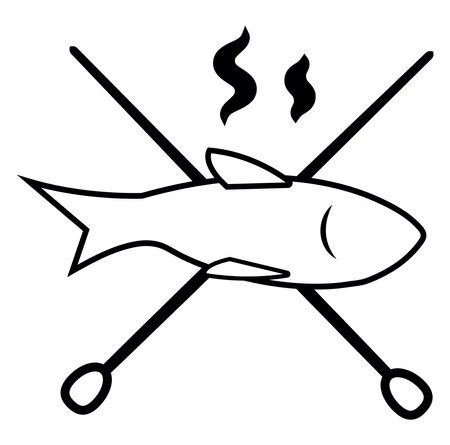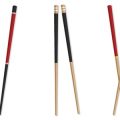Introduction to Coarse Fishing Club Competitions in the UK
Coarse fishing holds a cherished place in British leisure culture, weaving together tradition, sport, and social connection across towns and countryside alike. Unlike game fishing, which targets salmon and trout, coarse fishing focuses on freshwater species such as carp, bream, roach, and tench—fish that thrive in the nation’s lakes, rivers, and canals. Across the UK, this pastime is more than a solitary pursuit; it’s a vibrant community activity that brings together anglers of all ages and backgrounds. Local coarse fishing clubs play a pivotal role in nurturing this communal spirit by organising regular competitions throughout the year. These events range from high-stakes annual tournaments attracting top talent to informal match days where novices and veterans alike can test their skills in a friendly setting. Such gatherings not only foster healthy rivalry but also reinforce camaraderie, respect for nature, and a sense of belonging—values deeply embedded in the fabric of British angling culture.
Annual Events: Tradition and Community
Across the UK, coarse fishing clubs are renowned for their annual events—iconic fixtures that sit at the heart of the angling calendar. These gatherings are more than just a test of skill; they are steeped in tradition, embodying the spirit of camaraderie and local pride that has defined British angling culture for generations. From the historic club championships dating back to Victorian times to modern-day open festivals, these annual competitions draw participants from all corners of the nation, uniting communities both rural and urban.
The Most Anticipated Fixtures
Every club boasts its own flagship events, with certain tournaments earning legendary status among members and visitors alike. Whether it’s the time-honoured Spring Cup or the festive Christmas Match, anticipation builds throughout the year. The following table highlights some notable annual fixtures celebrated by clubs across different regions:
| Event Name | Region | Traditional Month | Unique Features |
|---|---|---|---|
| Spring Cup | North West England | April | Marks start of season, family-friendly BBQ |
| Presidents’ Shield | Midlands | June | Peg draw ceremony, team-based scoring |
| The Summer Open | South East England | August | Open invitation, junior angler awards |
| Christmas Match | Nationwide | December | Mince pies at weigh-in, charity fundraising raffle |
The Role of History and Heritage
The roots of these annual events often trace back decades or even centuries, with many clubs proudly maintaining original trophies and handwritten records. This connection to history fosters a sense of belonging and legacy among members, particularly when newcomers compete alongside seasoned veterans whose stories enrich the day’s proceedings.
A Gathering of Generations and Regions
No matter where an event is held—from picturesque Cotswold lakes to bustling Yorkshire canals—the underlying ethos remains unchanged: everyone is welcome. Anglers young and old, from neighbouring villages or distant counties, converge to share tactics, tales, and a few friendly rivalries. These gatherings serve as a melting pot for regional techniques and dialects, ensuring that while every event honours its own heritage, it also embraces new faces and evolving traditions.

3. Tournament Structure and Common Formats
When it comes to coarse fishing club competitions across the UK, understanding the structure and formats is vital for anglers aiming to compete effectively. Most club matches follow a well-established pattern, ensuring fair play, excitement, and a level playing field for all participants.
Pegged Matches: Levelling the Waters
The majority of UK coarse fishing contests operate as pegged matches. Here, each angler draws a numbered peg—a designated fishing spot along the bank—prior to the start. This system removes any advantage from choosing favoured swims and ensures everyone has an equal shot at landing quality fish. Peg draws are often done just before the match commences, adding an element of anticipation and tactical adaptation based on water conditions and local knowledge.
Points Systems: Rewarding Consistency
In many clubs, particularly those running league-style events or annual championships, points systems are implemented to track performance over several matches. Typically, higher points are awarded for top placings—such as 1st, 2nd, or 3rd—with scores accumulated throughout the season. Consistency is rewarded; an angler who regularly places in the top ranks may outperform someone with a single win but inconsistent results elsewhere. This format encourages strategic thinking and adaptability across different venues and conditions.
Weighting Methods: The Final Weigh-In
The primary method for determining winners in most coarse fishing matches is by total weight of catch. After the final whistle sounds, each competitor’s net is weighed using digital or analogue scales under the watchful eye of a steward or fellow angler to ensure transparency. In certain cases—especially on smaller waters or when targeting specific species—clubs might set bag limits or employ alternative scoring systems such as counting individual fish or awarding bonus points for specimen catches. However, total weight remains the gold standard for most open and club-level events.
Specialist Match Variations
Beyond traditional formats, some clubs introduce themed match days such as rover events (where peg choice is by early arrival), pairs competitions, or species-specific challenges like bream-only days. These variations keep things fresh and test an angler’s versatility throughout the season.
Tactical Takeaway
To thrive in UK coarse fishing competitions, it’s crucial not only to master technical skills but also to understand how these tournament structures influence strategy—from bait selection and swim preparation to managing your catch during pressured weigh-ins. Mastery of both tactics and formats is what separates regular club anglers from those lifting trophies at season’s end.
4. Tactics and Techniques: Gaining the Competitive Edge
Success in UK coarse fishing club competitions is rarely down to luck; it’s a blend of skill, preparation, and tactical nous. Top anglers consistently refine their approach to rigs, bait, and location selection—leveraging every possible advantage to out-fish their rivals. Below, we break down some of the most effective methods employed on the match circuit.
Popular Rigs for Coarse Fishing Competitions
| Rig Type | Best Use Case | Key Advantages |
|---|---|---|
| Pole Rig | Stillwaters, canals, and tight swims where precision is crucial | Superb bite detection and accurate presentation |
| Waggler Float Rig | Lakes and slow-moving rivers for targeting mid-water fish | Versatile and easy to adjust depth; good for roach and bream |
| Feeder Rig (Cage/Method) | Larger venues, deep waters, or when targeting bottom feeders | Delivers groundbait right to the hookbait; great for carp and bream |
| Running Line/Slider Rig | Deep or windy venues where fixed floats struggle | Allows longer casts and adapts to changing depths |
Bait Choices: Local Knowledge Pays Dividends
The choice of bait can make or break a session. Successful match anglers often adapt their selections based on venue history, seasonality, and prevailing conditions.
| Bait Type | Main Target Species | Notes & Tips |
|---|---|---|
| Maggots & Pinkies | Roach, perch, skimmers | Ideal for cold weather; use red maggots for extra attraction on clear days. |
| Caster & Worms | Bream, tench, bigger perch | Casters are deadly for wary fish; chopped worm adds scent trail. |
| Sweetcorn & Pellets | Carp, F1s, tench | Bright visual appeal; pellets pre-soaked for better breakdown. |
| Groundbait Mixes | All species (as attractor) | Add flavourings or soil to match water colour and clarity. |
Location Strategies: Reading the Water Like a Pro
Draw Tactics and Peg Analysis
The peg draw is a defining moment in any competition. Elite anglers immediately assess features like reed beds, overhanging trees, shelves, and depth variations. Early pegs near inflows or outflows can be productive, but pressure builds as more competitors fish similar areas. Observing wind direction and sun position also helps determine where fish may shoal.
Tactical Adjustments During the Match
The best match anglers remain flexible—changing lines of attack if bites slow down. Starting with an inside line close to the bank before moving further out later in the session is common practice. Feeding little-and-often with loose offerings keeps fish interested without overfeeding the swim. Quick gear adjustments—such as switching from light pole elastics to heavier setups if larger fish arrive—can transform results.
The Winning Mindset: Marginal Gains Add Up
No single tactic guarantees victory in UK club competitions. Instead, it’s about stacking small advantages: fine-tuning rigs, matching bait to local conditions, reading water features smartly, and adapting on the fly. Consistency comes from experience—and always learning from each event on the calendar.
5. Friendly Match Days: Building Skills and Social Ties
Amongst the competitive energy of annual events and high-stakes tournaments, Friendly Match Days stand out as a cherished tradition within UK coarse fishing clubs. These less formal gatherings are designed with community spirit at their heart, providing a welcoming environment where both newcomers and seasoned anglers can come together, share experiences, and hone their skills without the pressure of major competition.
Encouraging Participation Across All Levels
The ethos of a friendly match day is inclusivity. Clubs often use these events to introduce new members to the world of coarse fishing, offering practical tips and hands-on guidance from experienced club anglers. There’s no need for top-tier tackle or deep tactical knowledge; instead, the focus is on enjoyment, learning, and camaraderie. For many, these days serve as an ideal entry point into the sport, gently easing nerves and building confidence before stepping into more formal competitions.
Skill Development in a Relaxed Atmosphere
While the atmosphere is relaxed, there’s still plenty of opportunity for skill improvement. Friendly matches are often used to experiment with new rigs or baiting strategies, share advice on reading water conditions, or simply to observe different angling techniques up close. Because results aren’t the sole focus, anglers can take risks they might avoid during official tournaments—whether that’s trying a novel groundbait mix or adjusting presentation for shy-biting species like tench or crucians.
Strengthening Club Culture and Local Bonds
Beyond technical development, these match days are vital for nurturing the social fabric of local clubs. Whether it’s sharing a brew bankside or swapping stories after weigh-in at the local pub, strong friendships often form during these laid-back contests. Many clubs also open their friendly match days to families or youth groups, helping to secure the future of coarse angling by sparking interest in younger generations and making everyone feel welcome.
Ultimately, friendly match days play a crucial role in UK coarse fishing culture. They not only help participants sharpen their angling skills but also foster an inclusive community where knowledge is shared freely and lifelong bonds are forged—all while celebrating the joys of spending time by Britain’s diverse waters.
6. The Social Scene and Club Etiquette
Coarse fishing club competitions across the UK are about more than just landing the heaviest bag or claiming top spot on the podium; they are steeped in camaraderie, tradition, and a unique sense of community. The social side of these events is woven into the fabric of every match day, turning lakesides and riverbanks into lively meeting points for anglers of all backgrounds.
Post-Match Banter: A British Tradition
No match is truly complete without the customary post-match banter. Whether gathered around the weigh-in station or sharing a brew in the clubhouse, anglers exchange tales of near misses, hard-fought battles with wily carp, and cheeky jibes about lost tackle. This friendly ribbing is a hallmark of UK coarse fishing culture, helping to forge lasting friendships and rivalries that make each event memorable.
Clubhouse Camaraderie
The clubhouse often serves as the heart of the local angling scene. After the final whistle, competitors come together not just to tally scores, but to enjoy a pint, discuss tactics, and welcome newcomers. This inclusive atmosphere encourages knowledge-sharing—seasoned anglers are typically keen to pass on tips about rigs or bait selection to those still honing their craft.
Understanding Club Etiquette
Respecting club etiquette is essential for maintaining harmony both on and off the bank. Common courtesies include observing peg boundaries, keeping noise to a minimum during matches, and ensuring all litter is cleared away at the end of the day. Politeness extends beyond the water’s edge too; punctuality at draws and prize-giving ceremonies is expected, reflecting the British value placed on fair play and sportsmanship.
The Value of Local Sponsorships
Local businesses frequently lend their support to club competitions through sponsorships—providing prizes or refreshments that enhance the event’s atmosphere. These partnerships reinforce ties between clubs and their communities, while also giving anglers a sense of pride in representing their patch. Sponsors may even offer discounts at tackle shops or help fund improvements to club waters, underscoring the mutual benefits that arise from strong local backing.
In summary, while competition is central to UK coarse fishing events, it’s the blend of good-natured banter, respectful conduct, and community spirit that truly defines them. For many anglers, it’s these social connections—and not just a place on the leaderboard—that keep them returning season after season.
7. Pathways to Regional and National Recognition
For many coarse fishing club members across the UK, the journey doesn’t end with local match day victories or annual club trophies. Ambitious anglers often seek broader horizons, aspiring to compete at regional and national levels where skill, strategy, and consistency are truly put to the test. The pathway from club-level competition to representing one’s region—or even making a name on the national stage—follows a structured route that rewards both individual prowess and dedication to the sport.
Club Success as a Stepping Stone
It all begins at the grassroots level. Consistently strong performances in club matches, annual events, and inter-club friendlies can catch the eye of selectors or regional organisers. Clubs typically track results meticulously, using league tables and points systems to identify standout performers over the course of a season. Those who regularly finish in the frame, demonstrate good angling etiquette, and contribute positively to the club environment are often encouraged to take part in wider competitions.
Qualifying for Regional Representation
The next step is entry into regional qualifiers or invitation-only tournaments. Many regions run their own leagues or knockout events, drawing together top anglers from affiliated clubs. These contests not only raise the competitive bar but also introduce participants to different venues, unfamiliar waters, and varied tactical challenges—all crucial for developing a well-rounded match angler. Performing well here can lead to selection for county squads or teams entering prestigious inter-regional fixtures such as the Angling Trust’s national championships.
The Selection Process
Selection criteria vary by region and organisation but generally focus on recent results, adaptability across venues, and sportsmanship. Some regions hold dedicated trials days, while others use cumulative points from open matches to determine their representatives. Reputation within the angling community—built through reliability, teamwork, and respect for fellow competitors—can also play a significant role in progression.
The Prestige of National Competition
Representing your county or region at national events is an honour coveted by many UK coarse anglers. Such occasions bring together the crème de la crème of British match fishing talent at iconic fisheries like Barston Lakes or the River Trent. For those chosen, it’s more than just another contest: it’s a chance to wear club colours with pride, forge friendships across the country, and pit one’s skills against the best in Britain under intense scrutiny.
Beyond Individual Glory
While personal accolades are hard-won at this level, success also reflects positively on one’s home club and region. Victories in national finals inspire up-and-coming anglers back at base, raising standards throughout the grassroots scene. Many top-flight competitors remain active in their local clubs, mentoring juniors and sharing tactical insights gained from high-pressure matches around the country.
Conclusion: From Bank Side Beginnings to National Acclaim
The structured progression from friendly club matches to national championships is what gives UK coarse fishing its uniquely competitive spirit. Whether you’re aiming for glory yourself or simply enjoy cheering on your club-mates as they rise through the ranks, these pathways ensure that talent never goes unnoticed—and that every cast counts towards something greater than just a day’s sport.


